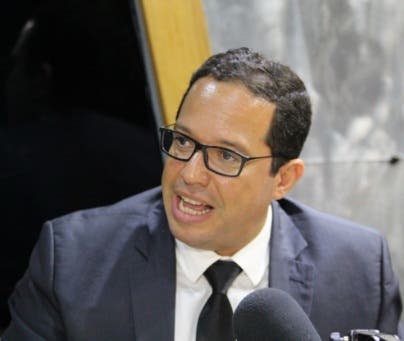Representatives of civil society organizations insisted yesterday on the importance of applying the primary, open and compulsory elections (PASO) in the general elections scheduled for 2024 in order for citizens to take direct participation in the definition of candidates.
This occurred in the session of the Constitution Commission, chaired by legislator Hernando Guerra (Popular Force), who invited different voices to hear their impressions on the possible process of political reforms.
Percy Medina, representative in Peru of International IDEA, stressed the need to engage citizens in the debate on the reforms. “If the reform is not accompanied by the people in the street, it will be an orphan reform, with little legitimacy and not very sustainable”, he stated.
The specialist considered that the application of the PASO by 2024 could help solve other problems.
He cited as an example the experience in Chile, where the Concertación de Partidos por la Democracia, made up of various leftist groups, held open primaries with the voluntary participation of citizens, which helped define which candidate had the greatest support to compete in the elections. main.
Medina specified that this previous process could also help to reduce the number of applicants in the final stage, since those who really show greater citizen support would be candidates.
Who also considered it important to apply the PASO was Adriana Urrutia, president of the civil association Transparencia. “The primaries must be open simultaneously and obligatory”, she expressed, while she opined that parity and alternation must also be guaranteed.
He pointed out that the open primaries would make it possible to define the lists of candidates for Congress, so that they arrive closed for the main election. In fact, this was one of the supports in the reform on the elimination of preferential voting.
Urrutia also stressed the need to respect the autonomy of electoral bodies. This, in a context in which there are voices that suggest cutting the constitutional mandate of the heads of the JNE, the ONPE and Reniec.
Another of the guests who spoke in favor of the application of the PASO in 2024 was Álvaro Henzler Vernal, coordinator of the Citizen Coalition. The specialist stressed that this reform has already been approved by Congress and it would be up to guarantee its implementation.
The issue, however, does not have the support of the majority of the benches in Congress. Just yesterday, legislator Adriana Tudela (Avanza País) expressed her rejection of the option that the citizenry compulsorily participate in primary elections to define presidential and congressional candidacies.
“I am opposed to that primary election being carried out in a mandatory manner. Why do we have to force all citizens to participate in a primary or internal election of parties, with respect to which they do not have any type of affinity? ”, He questioned.
Given this resistance from various parties with a presence in Parliament, Javier Portocarrero, executive director of the Consortium for Economic and Social Research (CIES), considered it an option for these primary elections to be held with the participation of citizens, but without obligation.
Bicamerality and re-election
Two proposals that received broad support from the guests were the return to bicamerality and re-election. Rosa Bueno De Lercari, president of the Lima Chamber of Commerce, pointed out that there must be a mechanism that allows for a political career, which is possible through the re-election of congressmen.
Percy Medina considered that betting on bicamerality and re-election without addressing other reforms already approved, such as open primaries, could be a mistake. The parliamentarian from Cusco Ruth Luque (Cambio Democrático) pointed out that political reforms must necessarily also have “social legitimacy”.
Open the field
The specialists also spoke of the need to improve the regulatory framework so that other parties can enter Peruvian politics. Percy Medina pointed out that registration must be made bureaucratic and that the high fence of militants must be replaced by a smaller number of affiliates with effective participation within the organization.
Adriana Urrutia argued that for these elections the minimum membership should be changed so that more citizens can get involved in Peruvian political activity.
reactions
Javier Portocarrero, Executive Director of CIES
“An intermediate solution could be open and simultaneous primary elections, but not necessarily mandatory or, if not, with one militant, one vote, with a minimum level of participation.”
Álvaro Henzler Vernal, Citizen Coalition
“The advancement of elections (must be) accompanied by the application of the PASO, and parity and alternation. We must ensure that the reforms already approved are applied in the 2024 election.”
















